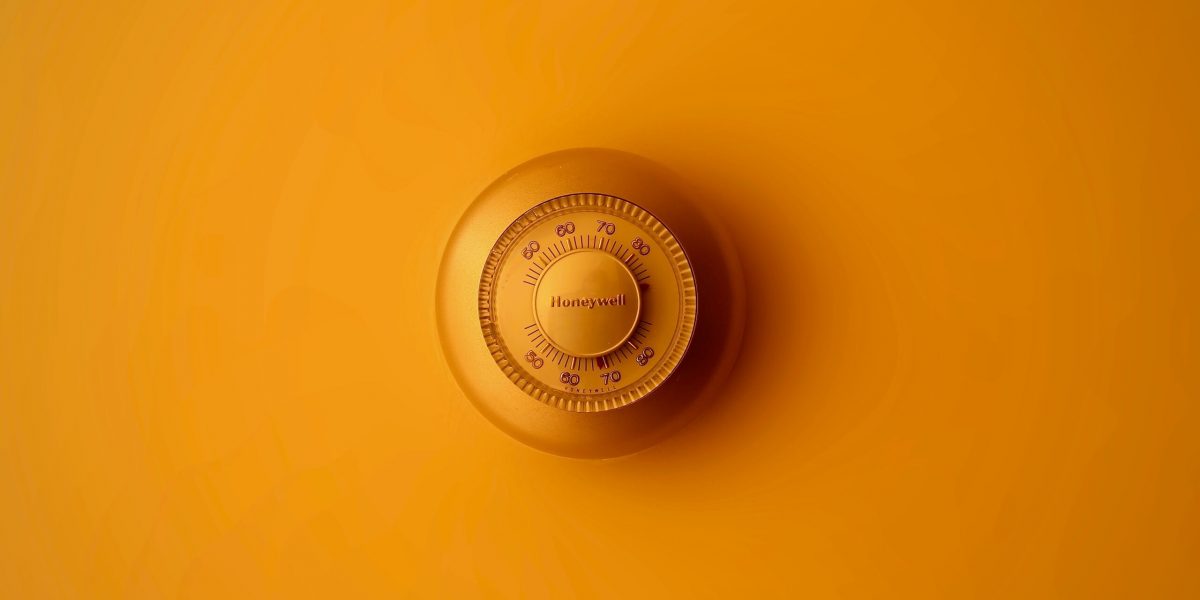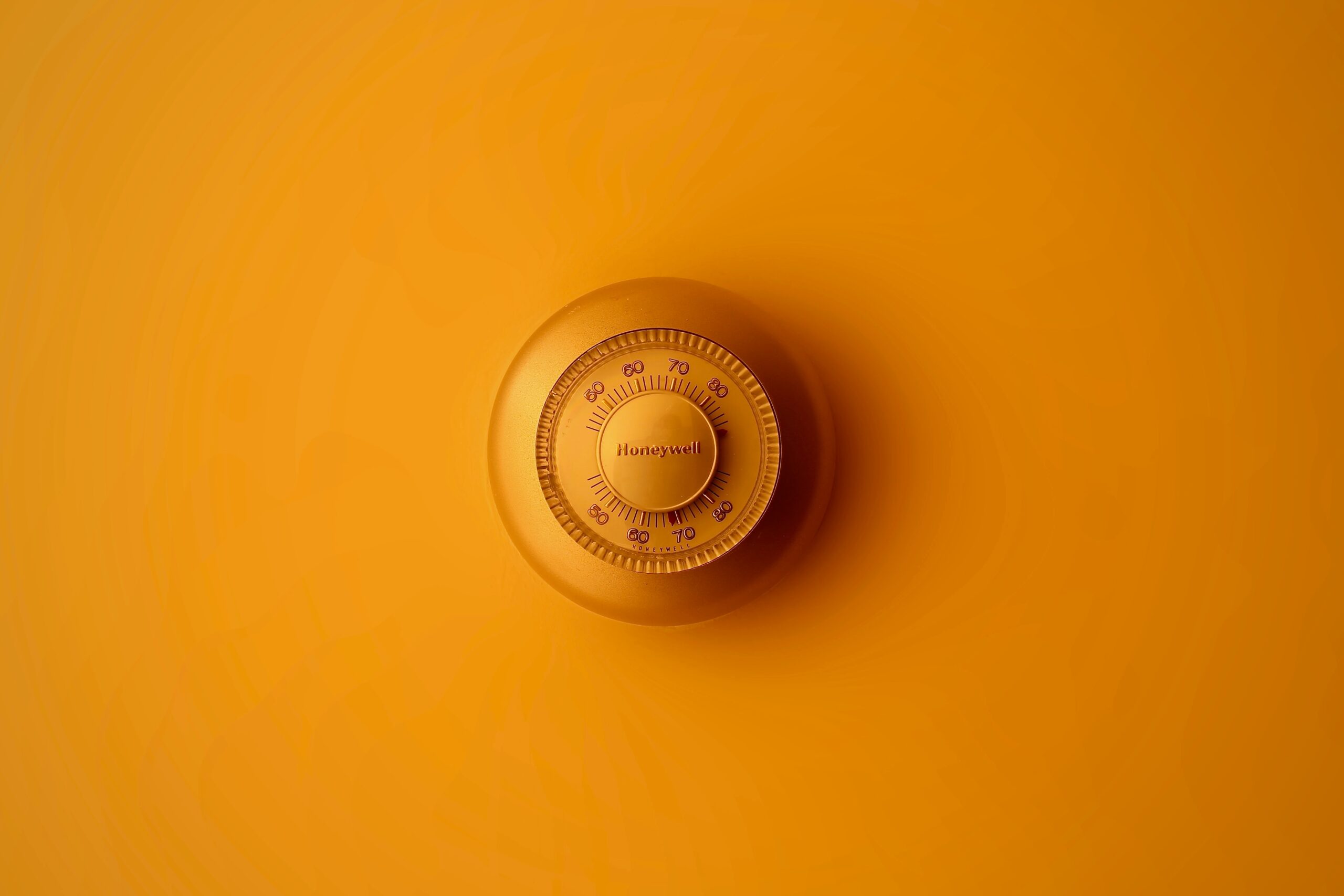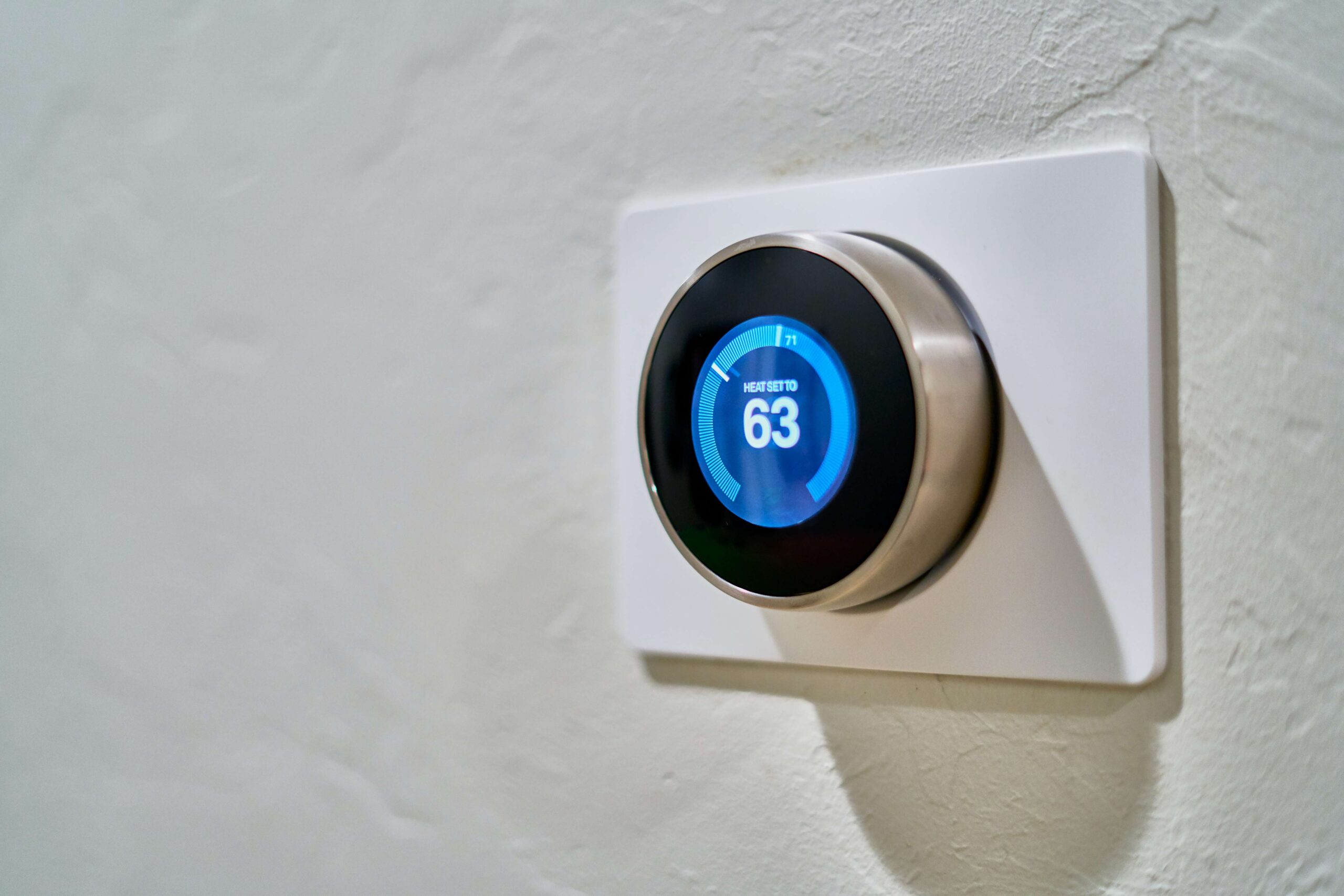The temperature of your bedroom can make a significant difference to your sleep quality. A National Sleep Foundation poll found that cool room temperature was one of the most important factors in getting a good night’s sleep, with as many as four out of five respondents saying this was important to them.
The best bedroom temperature for sleep is approximately 65 degrees Fahrenheit (18.3 degrees Celsius). This may vary by a few degrees from person to person, but most doctors recommend keeping the thermostat set between 60 to 67 degrees Fahrenheit (15.6 to 19.4 degrees Celsius) for the most comfortable sleep.
Our bodies are programmed to experience a slight dip in core temperature in the evening. Turning the thermostat down at night may help with temperature regulation and signal your body that it’s time for bed.
The Best Sleep Temperature for Infants
Infants may benefit from a bedroom that’s one or two degrees warmer, up to 69 degrees Fahrenheit (20.5 degrees Celsius). As their bodies are smaller and still developing, they are more sensitive to changes in ambient temperature.
A bedroom that’s too warm may increase the risk of sudden infant death syndrome (SIDS). It is recommended to use approved sleepwear, ensure a favorable temperature by setting the thermostat, and avoiding heavy blankets or multiple layers. Parents can monitor their baby’s temperature during the night by touching the stomach or the back of the neck.
Research suggests that babies achieve temperature maturation by eleven weeks of age1, on average. At this point they start to reach a minimum core body temperature of 97.5 degrees Fahrenheit (36.4 degrees Celsius) within four hours of bedtime, similar to adults.
How Does Temperature Affect Sleep?
Our sleep cycle is regulated by our circadian rhythm. The circadian rhythm is based on the light-and-dark cycle of the sun and controlled by a part of the brain called the suprachiasmatic nucleus, located in the hypothalamus. This master “body clock” gets its cues from a number of environmental and personal factors, ranging from the amount of light exposure (most significant), to exercise, and temperature.
Our core body temperature2 hovers around 98.6 degrees Fahrenheit (37 degrees Celsius), but fluctuates by about 2 degrees Fahrenheit3 throughout the night. The drop in temperature starts about two hours before you go to sleep, coinciding with the release of the sleep hormone melatonin4 . During sleep, body temperature continues to fall, reaching a low point in the early morning and then gradually warming up as the morning progresses.
The principal way in which the body cools itself down for sleep is by sending heat away from the core. In a process called vasodilation, the circadian clock sends a signal to increase blood flow to the extremities. This is why some people may experience warm hands and feet – which can be mistaken for overall body temperature – at night. Indeed, people who have chronically cold feet5 may be at higher risk for sleep-onset insomnia, possibly due to a disruption of this process.
Get the latest information in sleep from our newsletterYour privacy is important to us.
What Happens When Your Bedroom Is Too Hot?
Warmer temperatures can cause discomfort and restlessness, and anyone who has slept in a stuffy bedroom can attest that it’s hard to nod off when you’re sweaty and dehydrated. A bedroom that’s too warm can interfere with your body’s thermoregulation abilities and cause fatigue6. Often, a person who is fatigued will feel physically and mentally tired, but unable to fall asleep.
Body temperature affects not only sleep onset, but also sleep quality and the time spent in different sleep stages. A higher core body temperature has been associated with a decrease in restorative slow-wave sleep7 and subjective sleep quality. Similarly, a bigger difference in temperature between the core and the extremities – which indicates that the body is not efficiently sending heat away from the core – has been associated with decreased sleep efficiency8 and a higher likelihood of waking up after falling asleep.
During REM sleep, the body ceases most temperature-regulation9 behaviors such as sweating or shivering, leaving you more sensitive to ambient temperature changes. Accordingly, excessively hot ambient temperatures also appear to lessen the time spent in REM sleep10.
In addition to causing grogginess the next day, a decrease in REM and slow-wave sleep can negatively impact bodily recovery and the immune system, as well as learning, memory, and other processes.
While a cold bedroom temperature is not considered to be as detrimental as an overly warm bedroom temperature, this can also cause discomfort and may have ramifications for REM sleep and blood pressure11.
Tips for Keeping the Bedroom Cool
The following suggestions can help optimize your bedroom temperature for sleeping:
- Close the blinds to reduce heat build-up during the day
- Move downstairs during the summer
- Turn down the thermostat at night
- Use a fan or air conditioning in hot climates, or a hot water bottle on cold nights
- Open the windows to promote ventilation
- Control bedroom humidity
- Reduce sweating with a breathable mattress, sheets, duvet, comforter, pillow, and loose pajamas
- Take a warm bath12 an hour or two before bedtime to encourage a natural cool-down effect
In addition to optimizing the temperature of your sleep environment, you can help your body prepare for sleep by being kind to your own internal thermostat. As the circadian rhythm is sensitive to fluctuations in light, diet, and exercise, the timing of these activities can impact body temperature, and potentially sleepiness.
Sleep hygiene habits like going to bed at the same time every night, avoiding caffeine and alcohol before bed, and keeping a dark, quiet bedroom will help you set your body clock and sleeping temperature on a consistent schedule. For more advice on finding a temperature that’s just right, read our article on how to sleep cool on a hot night.
Source: sleepfoundation.org


